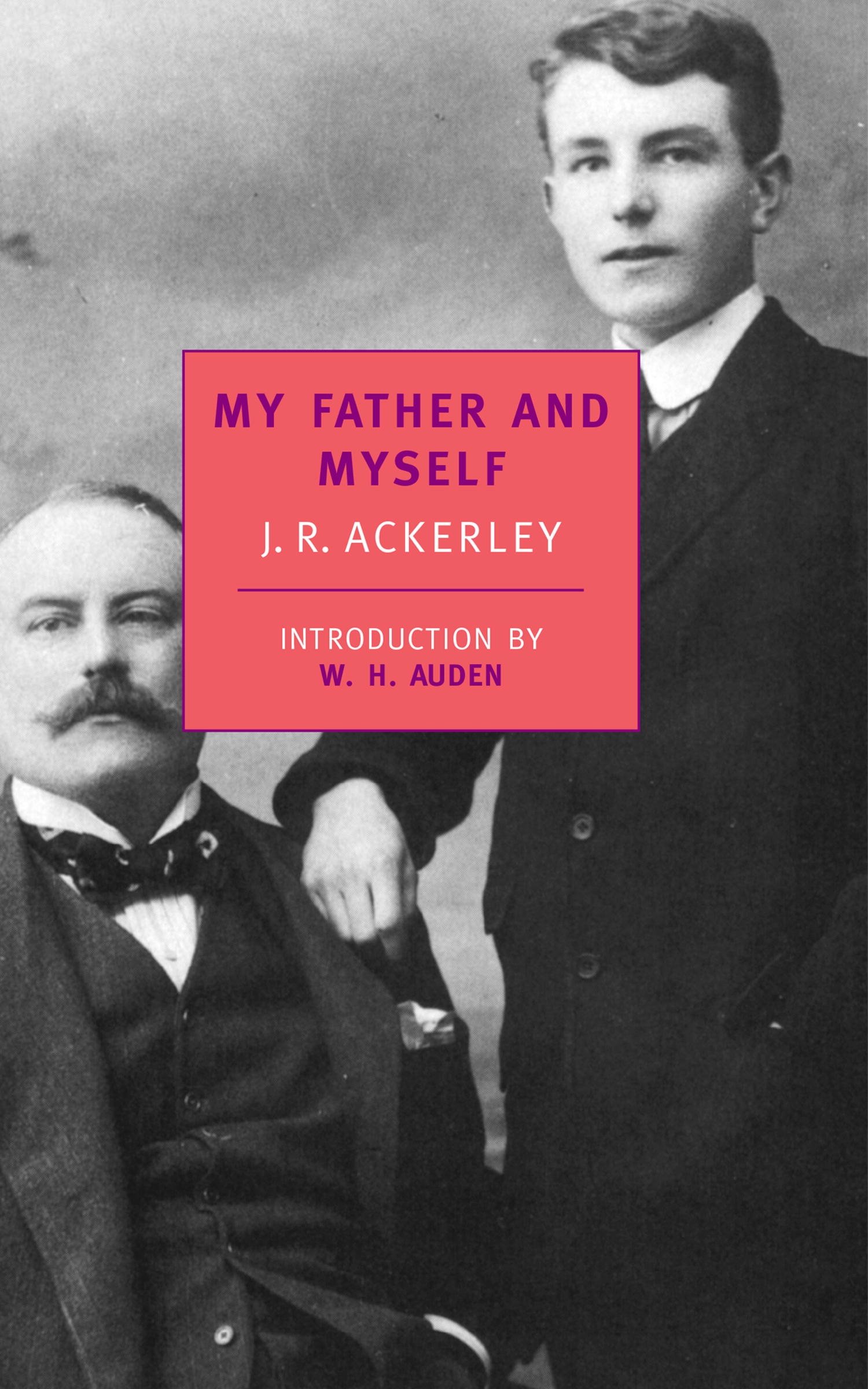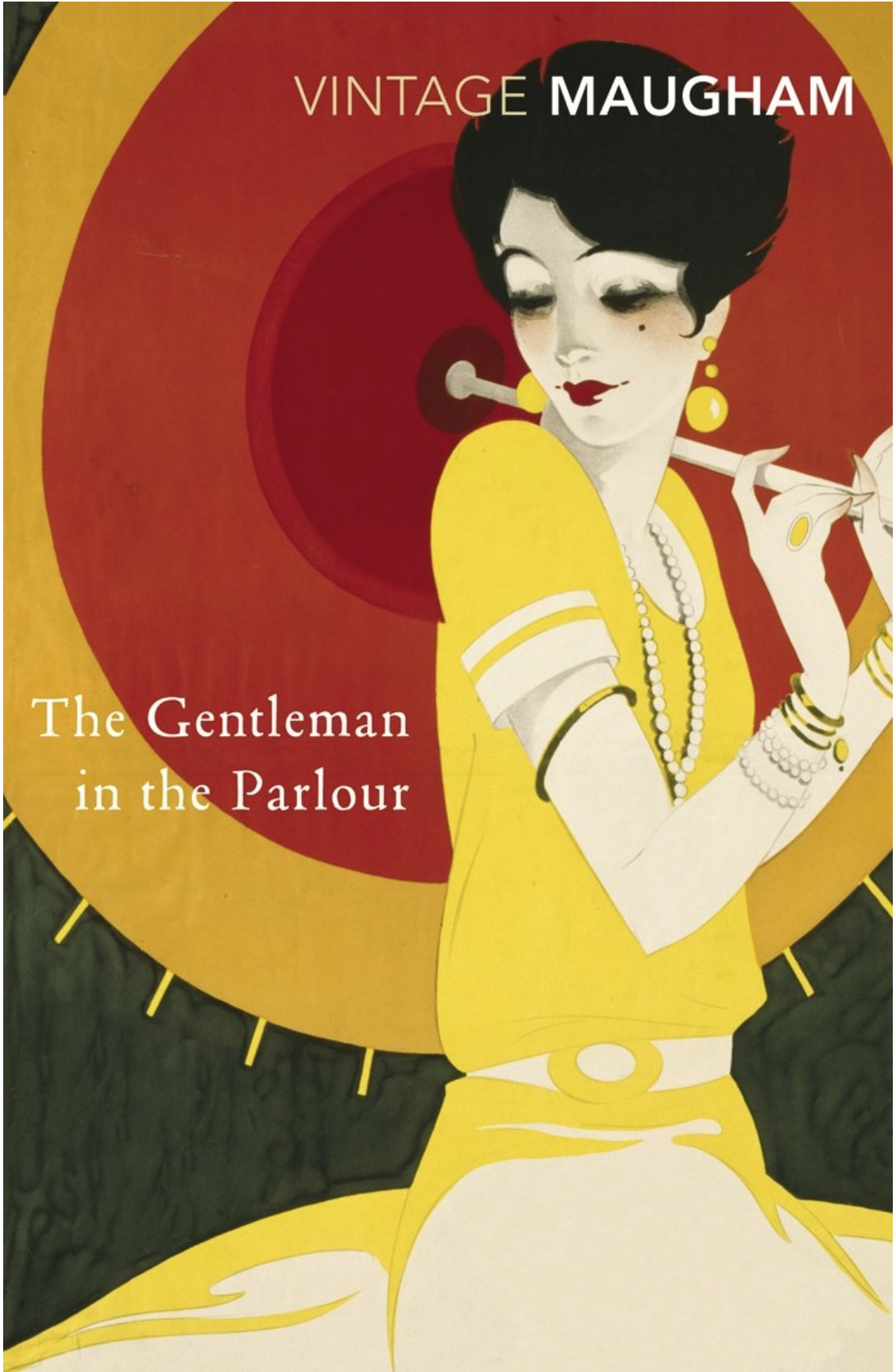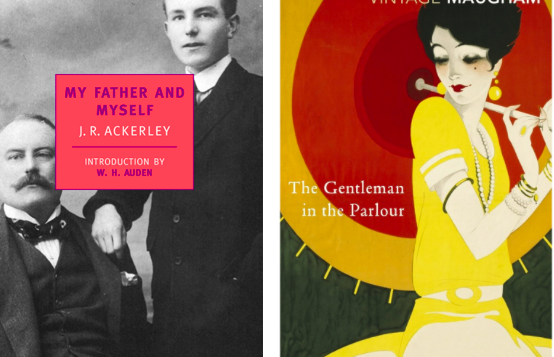IT SEEMED TO ME that the “Stay-at-Home” life mandated by the spread of Covid-19 was like being stuck somewhere when war was declared. Suddenly we could no longer travel but had to stay wherever we were. In my case, it was a house in a small town in northern Florida. I’d left Washington, D.C., on January 24th, thinking I’d return in five or six weeks. By late June, I was still in the Sunshine State.
But the house had books—books I’d been accumulating and hadn’t looked at in many years. A lot of them were in a bookcase I discovered only when a friend took an old recliner that I’d stashed on the porch long ago to the town dump. The moment he did, I realized it had been hiding a bookcase all these years, and in that bookcase were books I hadn’t looked at in ages. And that was how I began my own experience of the coronavirus lockdown: I read my way through it.
What was I reading before the lockdown began? I had just finished a book by Julian Barnes called The Man in the Red Coat, about Samuel Pozzi (reviewed in the July-August 2020 issue), the subject of a famous portrait by John Singer Sargent that is now in the Armand Hammer Museum in Los Angeles. I was also reading two paperbacks that I’d found on my bedroom floor. One of these was Walt Whitman’s America, by David Reynolds. The Whitman book I found easy reading, especially since I skipped around to parts that interested me. By the time I’d almost finished, I was no more an admirer of Whitman than I had been before—either the poetry or the man—though it was a fascinating reminder that life in these United States has always been chaotic, combative, and belligerent: a good thing to be reminded of once the troubles began not long after the Stay-at-Home began.
The other paperback was The Brothers Karamazov, a novel I’d tried to read years ago but couldn’t get into. But this time, stuck in Florida in the middle of a quarantine, it was just the escape I needed: Russia, the 19th century, monks, and murder—a total change from my own circumstances. I got about half- way through before discovering the hidden bookcase, and at that point I put it aside.
The first thing that caught my eye in the forgotten bookcase was Hervé Guibert’s To the Friend Who Did Not Save My Life. I hadn’t liked it much when I read it years ago. The title indicates the tone in which it’s written, though nobody could challenge Guibert’s right to be angry and bitter about dying of AIDS as a young man. Beneath it was my friend Nick Bamforth’s book AIDS and the Healer Within, a book that emphasized the mind-body relationship and provided meditation exercises for people who were sick. There were obvious comparisons between HIV and the Coronavirus, though in a strange way the latter seemed worse. To avoid HIV you could give up unsafe sex; to avoid Covid-19, it seemed as if you could not leave the house.
But I didn’t want to travel back to that awful time, so I chose a book called A Proust Souvenir. In it were portraits by Nadar of people who had inspired Proust’s characters. It was absolutely haunting, these faces from another time—Proust’s mother, brother, friends, lovers, and fellow social climbers—so haunting that I kept it by my bedside for weeks, turning the pages over and over, trying to see what was in the dark eyes looking at me over the span of more than a hundred years. After that, I began reading Miranda Seymour’s A Ring of Conspirators: Henry James and His Literary Circle, about James when he lived in Lamb House and the other writers (H. G. Wells, Stephen Crane, Joseph Conrad) who were not far away and had no reason to observe social distancing. Then I came to an old favorite, its binding broken by time and use: My Father and Myself, by J. R. Ackerley. (The journey through this bookcase proved to be a testimony to the importance of whatever it is that printers use to bind pages together.) The Ackerley book, one of my favorites, is a model of English prose and great storytelling, but this time it seemed to me to justify the charge that E. M. Forster, Ackerley’s friend, made when it came out posthumously: that Ackerley had emphasized the difficulty of homosexual life and left out all the fun (a charge, interestingly, that was leveled against Proust by André Gide). And then, mirabile dictu, I found in my bedroom Peter Parker’s biography of Ackerley, which confirmed Forster’s charge: Ackerley had been sort of a neurotic mess, though a brave soldier (the pages on World War I stood out even more on second reading) and a superb editor of the BBC’s literary magazine.
Next I paired a travel book with a biography. The Gentleman in the Parlour (1930), by W. Somerset Maugham, is an account of a trip he made by sampan, donkey, and on foot through Burma, Laos, Thailand, and Vietnam—the perfect escape for someone trapped in his house in 2020—with Maugham on a donkey exploring a part of the world where the isolated characters he met in the jungle gave him so many of his greatest stories: “The Letter,” “The Outstation,” and “Rain.” The biography Somerset Maugham (1980), by Ted Morgan, confirmed what I’d suspected: that Maugham had not been by himself on that trip; he’d gone with Gerald Haxton, his lover, a younger man who had a talent for chatting up people in the bar that the extremely reserved Maugham did not. It was Haxton who would recruit the people who told Maugham the stories he used in his books, infuriating them afterwards. The binding of Ted Morgan’s biography was so damaged it had fallen apart into five or six sections. Nevertheless, I liked it so much that I slowed down toward the end, not just because the scenes of Maugham’s dementia before he died are shocking but because the book had been so wonderfully entertaining.

 In fact, I was at a loss when it was over—until I discovered by my bed another book that was just as much fun: John Richardson’s Sacred Monsters, Sacred Masters, a collection of his articles in Vanity Fair and The New York Review of Books about artists like Picasso and Braque and Andy Warhol, and writers like Truman Capote. The literary equivalent of a big vat of chocolate mousse, in other words, that I so hated to finish that when it was done I picked up a volume by Irwin Shaw and the illustrator Arnold Searle called Paris! Paris! (1976), after which I really was at a loss, until I found a beautifully printed book by Christopher Reed titled Art and Homosexuality (2011) whose gorgeous illustrations solved the problem of what to read next: I simply looked at pictures.
In fact, I was at a loss when it was over—until I discovered by my bed another book that was just as much fun: John Richardson’s Sacred Monsters, Sacred Masters, a collection of his articles in Vanity Fair and The New York Review of Books about artists like Picasso and Braque and Andy Warhol, and writers like Truman Capote. The literary equivalent of a big vat of chocolate mousse, in other words, that I so hated to finish that when it was done I picked up a volume by Irwin Shaw and the illustrator Arnold Searle called Paris! Paris! (1976), after which I really was at a loss, until I found a beautifully printed book by Christopher Reed titled Art and Homosexuality (2011) whose gorgeous illustrations solved the problem of what to read next: I simply looked at pictures.
It was a good idea, because by the time I’d finished reading all those books, the world outside the house in which I was devouring my library seemed by mid-May to be going up in flames. I already felt like an animal in a cage when I looked out the window at the lush green yard, the temperature getting hotter with each passing day. Even worse, by late May American life seemed to have broken down into a sort of civil war. The language in the books I’d been reading was all pleasure: full of humanity, nuance, humor, empathy, and wisdom. Not so in the “real” world. Language there had become a series of grenades going off in people’s faces: editors resigning for publishing columns or even titles of columns deemed racially insensitive; J. K. Rowling being hauled on the coals by the trans community for her take on gender; young women demanding an apology from a Washington Post cartoonist at whose Halloween party two years earlier a white woman had dressed as Meghan Kelly in blackface; an African-American woman at Condé Nast who felt insulted when her editor gave her a copy of Strunk and White’s Elements of Style. Words had become grounds for ending people’s careers.
The list of axed editors the Dailybeast.com published in May began with the resignation of James Bennet, the op-ed editor of The New York Times, for allowing a column by Senator Tom Cotton advocating a show of military force during the protests; an editor at the Philadelphia Inquirer who resigned for having allowed his architecture critic to publish a piece with the title “Buildings Matter Too”; a professor at the University of Central Florida who was being “investigated” for writing about black privilege; an editor at Bon Appetit who resigned for going to a party in Puerto Rican “brownface”—all of which reminded me of another book I’d found in my old bookcase: The Lavender Scare (2004), by David Johnson.
The Lavender Scare is about Senator Joseph McCarthy’s campaign to purge the federal government of homosexual employees. McCarthy’s legal counsel was the closeted attorney Roy Cohn, mentor of the current president, whose own smear campaigns and trash talk have surely helped bring us to the present breakdown. It was hard to choose the definitive, iconic moment of the protests—Trump hiding in the White House bunker while a mob shouted him down from the barriers around Lafayette Square, or Ivanka pulling the Bible from her $1,500 Max Mara handbag, which he would hold up for that cheesy photo-op, or the protestors raising their fists photogenically into the sky, like Liberty storming the barricades in Delacroix’ painting. This, I thought, is what Trump’s election had been about from the very beginning: a barroom brawl. It was a perfect storm: Trump, the lockdown caused by the Covid pandemic, the cooped-up quality of our lives, the resignations and apologies of people who’d made the mistake of not showing sufficient reverence for race, gender, or any of the current sacred cows of American culture.
 One explanation suggested for the homophobia of the McCarthy era was America’s paranoia over the threat from the Soviet Union during the Cold War. But in Johnson’s meticulously researched telling, it seemed less ideological than that, more a product of politicians pursuing votes, vice cops enjoying what they were doing, and the vulnerability of young men being hauled in, interrogated, asked to turn in friends, sign confessions, and then agree to resign or be fired for their trouble. Now we had the anonymous malice of social media. The latest iteration of public shaming (something that seems to break out periodically in American history, whether at the Salem witch trials, the Hollywood blacklist, or the McCarthy hearings) seemed to be propelled by what a friend of mine calls “hoozas”—who’s a racist, who’s a sexist, who’s a homophobe or transphobe. The fact that journalists were going through other journalists’ old emails to find examples of political incorrectness made me think of The Children’s Hour (1934)—the play by Lillian Hellman in which a girl accuses two women of being lesbians—and Hellman’s subsequent memoir about the Hollywood blacklist, Scoundrel Time (1976).
One explanation suggested for the homophobia of the McCarthy era was America’s paranoia over the threat from the Soviet Union during the Cold War. But in Johnson’s meticulously researched telling, it seemed less ideological than that, more a product of politicians pursuing votes, vice cops enjoying what they were doing, and the vulnerability of young men being hauled in, interrogated, asked to turn in friends, sign confessions, and then agree to resign or be fired for their trouble. Now we had the anonymous malice of social media. The latest iteration of public shaming (something that seems to break out periodically in American history, whether at the Salem witch trials, the Hollywood blacklist, or the McCarthy hearings) seemed to be propelled by what a friend of mine calls “hoozas”—who’s a racist, who’s a sexist, who’s a homophobe or transphobe. The fact that journalists were going through other journalists’ old emails to find examples of political incorrectness made me think of The Children’s Hour (1934)—the play by Lillian Hellman in which a girl accuses two women of being lesbians—and Hellman’s subsequent memoir about the Hollywood blacklist, Scoundrel Time (1976).
Which brings me to another book I had been reading that May: a collection of Matthew Arnold’s essays on what he found troubling about Britain in the 1860s. It was a relief to be reading about another country at the height of its empire and the problems Arnold felt his countrymen were not facing up to, problems that seemed not unlike our own: the English middle class’s faith in what Arnold called “machinery” (wealth, industry, sports, religion), the materialism that valued everything except for what Arnold felt should be our goals, namely human perfection and the will of God. Human perfection in Arnold’s view was best pursued through culture, or what he called “sweetness and light,” meaning beauty and reason; not the self-congratulatory materialism that was failing to improve the British character. Here in the U.S., materialism was failing people altogether, since Covid-19 had laid bare in a shocking way the problems with our own way of life: the consumerism that was defoliating the planet, the air travel and car driving whose reduction had not only cleared up the canals of Venice and revealed the mountains above Tehran, New Delhi, and L.A., but also exposed the degree to which a lot of people were living from paycheck to paycheck. The brutal suffocation of George Floyd was simply the spark that ignited the kerosene. Unfortunately, this had come when we’d already had enough of the sort of people Matthew Arnold called “Jacobins” after the radical left that sent people to the guillotine in the Reign of Terror during the French Revolution.
Jacobinism, Arnold wrote in Culture and Anarchy, is characterized by a “violent indignation with the past, abstract systems of renovation applied wholesale, a new doctrine drawn up in black and white for elaborating down to the smallest details a rational society for the future”—in short, what we’ve been seeing over the past year. The passage of poetry that is always being used to explain times like these is from Yeats’ “The Second Coming”: “Things fall apart; the centre cannot hold. … The best lack all conviction, while the worst/ are full of passionate intensity.” But it’s the question that Joseph Welch finally asked Senator McCarthy—“Have you no sense of decency, sir, at long last?”—that has been haunting me most. Aside from Bill Maher, the silence of people afraid to be called names for questioning any of this petty, vindictive policing of language was deafening.
After all, until recently it was homosexuals who were on the shit list; The New York Times refused even to use the word “gay” for many years. But gay people spoke out; they wrote, they shouted, they demanded to be heard. Gay liberation was based on freedom of speech. Glaad monitored the media for defamation, but we stood for self-expression. So it’s not enough to feel oneself safe while others are being persecuted now for their words or thoughts. Why the #MeToo movement was not able to differentiate Al Franken and Harvey Weinstein was puzzling; but Franken was only the first to be guillotined. Reading The Lavender Scare only reminded me of how recently we were the denounced.
This war of words won’t stop, I suspect, until the day Trump vacates the White House and the national discourse ceases to sound like the Howard Stern show. Until then, we can only lament that the Puritans (whom Arnold disliked as much as he did the Jacobins), with their witch hunts and banishments, never disappear from American culture but only lie dormant for a while. Which means, like every essay on the Covid lockdown that I have read, this one ends with no resolution, no catharsis. All we can do is work for “sweetness and light.” In the meantime, I picked up another book last night from the stack by my bed: Alberto Angela’s A Day in the Life of Ancient Rome. You can never get too much perspective on things.
Andrew Holleran is the author of the novelsDancer from the Dance, Nights in Aruba, The Beauty of Men, andGrief.






